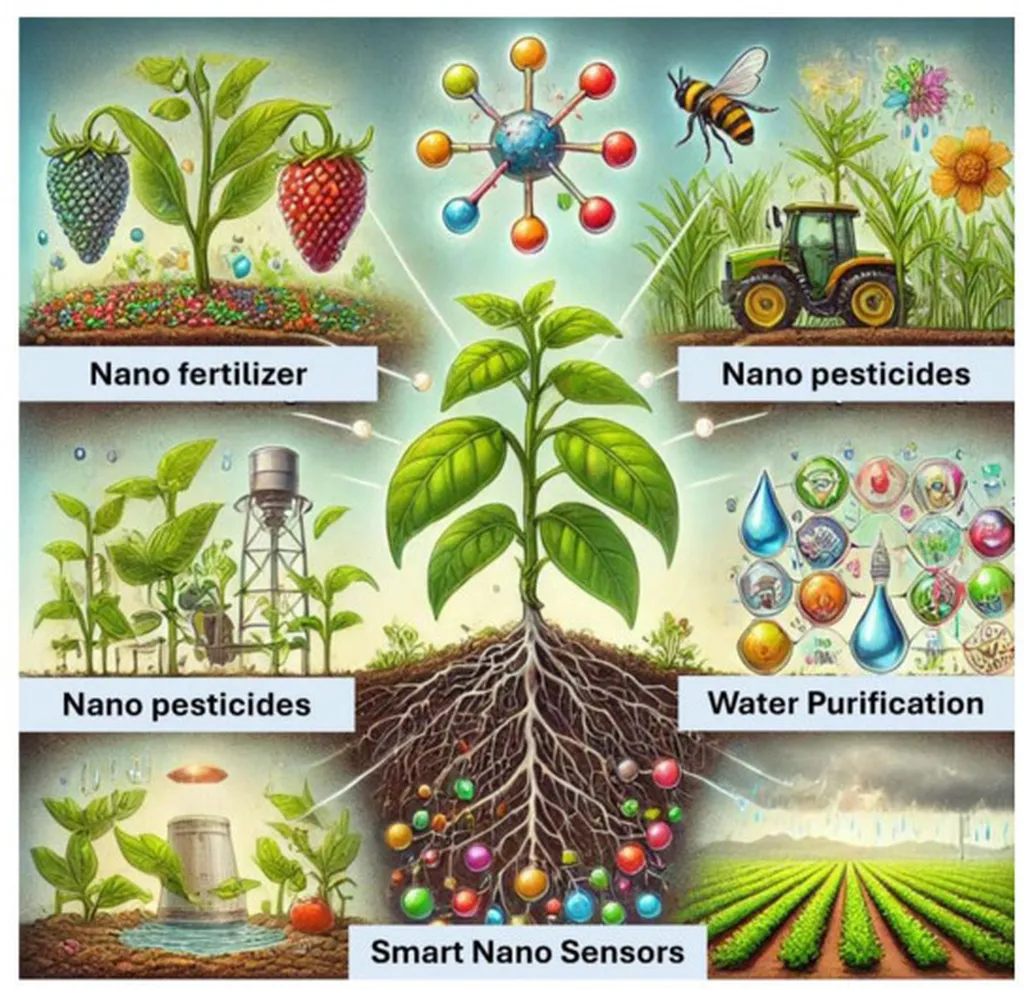In the heart of Pakistan’s arid regions, where water scarcity is a constant challenge, a groundbreaking study has emerged that could revolutionize the way we approach agriculture. Researchers, led by Javaria Munir from the School of Botany at Minhaj University Lahore, have discovered that foliar-applied nano-fertilizers can significantly enhance drought tolerance in cluster bean (Cyamopsis tetragonoloba L.), a vital crop for the energy sector due to its use in producing guar gum, a key ingredient in hydraulic fracturing fluids.
The study, published in ‘Plant Nano Biology’ (which translates to ‘Plant Nano Science’), reveals that under water deficit conditions, nano-fertilizers containing Potassium (K), Zinc (Zn), and Boron (B) can improve the photosynthetic rate and overall yield of cluster beans. “The results were remarkable,” Munir stated. “We saw increases in plant height, pods per plant, pod yield, and protein content, particularly in the BR-2021 genotype when treated with a combination of these nano-fertilizers.”
The experiment, conducted at MNS-University of Agriculture in Multan, compared two genotypes of cluster bean under different irrigation regimes. The combined application of nano-K, nano-Zn, and nano-B led to a notable 7.31% increase in pod yield and a 12.4% increase in 100-seed weight compared to the control group with skipped irrigation. These findings suggest that nano-fertilizers could be a game-changer for farmers in arid regions, helping them maintain productivity despite limited water availability.
The implications for the energy sector are substantial. Guar gum, derived from cluster beans, is a critical component in hydraulic fracturing, a process essential for extracting natural gas and oil. By enhancing the drought resilience of cluster beans, nano-fertilizers could stabilize the supply of guar gum, ensuring a more reliable source for the energy industry.
Moreover, the use of nano-fertilizers aligns with the growing trend towards sustainable and resource-efficient agriculture. “This approach not only improves crop yield but also contributes to climate-resilient agriculture,” Munir explained. “It’s a win-win situation for both farmers and the environment.”
The study’s findings open up new avenues for research and development in the field of agritech. As climate change continues to pose challenges to traditional farming practices, the adoption of innovative solutions like nano-fertilizers could pave the way for a more sustainable and productive future. The research underscores the potential of nanotechnology in agriculture, offering a promising tool to combat the adverse effects of drought and ensure food security.
In the broader context, this research could inspire further exploration into the use of nano-fertilizers for other crops and in different environmental conditions. The commercial impacts are far-reaching, with the potential to enhance crop yields, improve nutrient management, and support the energy sector’s demand for guar gum. As the world grapples with the dual challenges of climate change and resource depletion, such advancements in agricultural technology are not just beneficial but essential.

